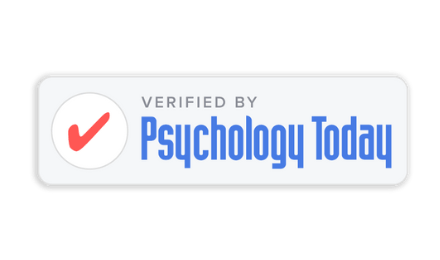Effective communication is paramount to the success and well-being of any relationship. As anxiety is a common concern for many individuals, it is important to understand how healthy communication can help manage the feelings and symptoms of anxiety in a relationship context. By learning and practicing effective communication strategies, couples can promote increased openness and stronger emotional connections essential in managing anxiety. This educational and informative blog post will focus on offering valuable insights and tips on improving communication for anxiety management in relationships, including those in the LGBTQ+ community.
Anxiety can manifest in various ways within relationships, such as anxious attachment styles, avoidant attachment styles, and general communication issues. These challenges can be significant for couples experiencing pre-marriage stress, navigating divorce, or working through affairs. Psychotherapists at Blue Sky Wellness Clinic recognize the importance of counselling through these difficult times, providing both in-person and online sessions tailored to meet each unique situation’s needs.
The Role of Anxiety in Relationships and Its Impact on Communication
Anxiety is an increasingly prevalent mental health concern that can significantly impact an individual’s ability to communicate effectively in a relationship. When a person experiences anxiety, their thought processes and emotional state may be dominated by negative feelings, such as fear, worry, or self-doubt. Consequently, they may find it challenging to express themselves openly and honestly with their partner, leading to potential misunderstandings and conflicts.
In the context of relationships, anxiety can manifest itself in different ways, such as:
- Anxious attachment styles: Individuals with an anxious attachment style may experience intense fears of abandonment and often seek reassurance, attention, or validation from their partner. This may lead to constant questioning, repeated requests for affirmation, or excessive clinginess.
- Avoidant attachment styles: Those with an avoidant attachment style tend to distance themselves emotionally from their partner, preferring to avoid feelings of vulnerability or dependency. As a result, they may struggle to share their emotions or respond to their partner’s emotional needs effectively.
- Communication issues: Anxiety can exacerbate existing communication problems, making it hard for couples to engage in meaningful conversations, leading to misunderstandings or conflicts that escalate the anxiety further.
Practical Strategies for Managing Relationship Anxiety through Effective Communication
Here are some actionable tips and strategies for enhancing communication in relationships to better manage anxiety:
1. Practice Active Listening
Active listening involves not only hearing your partner’s words but also understanding their underlying emotions and intentions. By actively listening, you can foster an open and supportive environment that promotes trust and empathy. Here’s how to practice active listening more effectively:
- Focus on your partner’s words, tone, and body language
- Provide verbal feedback (e.g., “I understand,” “I see,” or “Tell me more”)
- Avoid interrupting or formulating a response while your partner is speaking
- Summarize what your partner said for clarity and confirmation
2. Express Empathy and Validation
Empathy is the ability to put yourself in your partner’s shoes and understand their emotions, thoughts, and experiences. It is crucial to validate your partner’s feelings, even if you might not entirely agree with them. Displaying empathy and validation can help alleviate anxiety, as both partners feel understood and supported. Try these techniques for demonstrating empathy:
- Acknowledge your partner’s perspective (e.g., “I understand how you feel”)
- Share similar experiences or feelings, if applicable (e.g., “I’ve felt that way too”)
- Offer supportive statements or gestures (e.g., “I’m here for you”)
3. Set Healthy Boundaries
Establishing boundaries is essential for maintaining respect and balance in a relationship. Clear boundaries can help prevent anxiety from spiralling out of control. When setting boundaries, consider:
- Identifying what issues or behaviours are causing strife or discomfort
- Communicating your needs and limits clearly and calmly with your partner
- Ensuring both partners have agreed upon and understand the boundaries
- Regularly reviewing and adjusting boundaries as necessary
4. Cultivate Self-awareness
Self-awareness refers to your ability to recognize your thoughts, emotions, and behaviours, as well as how they impact others. Being self-aware can help you navigate communication issues and anxiety more effectively, as it enables you to:
- Identify anxiety triggers and patterns
- Address negative or unhelpful thoughts and behaviours
- Understand how your anxiety affects your partner and your relationship
Addressing Unique Challenges in LGBTQ+ Relationships
LGBTQ+ relationships can face unique challenges when confronting anxiety and communication. Factors such as societal pressure, discrimination, or internalized stigma may exacerbate anxiety for individuals in same-sex relationships or those who identify as LGBTQ+. Here are some tailored strategies for addressing these specific challenges:
- Seek support from LGBTQ+ communities or resources to build connections and foster understanding with others who share similar experiences
- Encourage open, honest, and inclusive conversations regarding the unique challenges LGBTQ+ couples face
- Develop coping strategies for handling discrimination or stigma, such as educating others or seeking legal protection when necessary
The Value of Professional Counselling for Better Anxiety Management and Communication
While the strategies outlined above provide valuable guidance for enhancing communication and managing anxiety in relationships, seeking professional assistance can be instrumental in promoting lasting change. Licensed psychotherapists, such as those at Blue Sky Wellness Clinic, can offer tailored guidance and support when navigating challenges related to anxiety and communication in relationships. Through in-person or online counselling sessions, mental health professionals can provide:
- Personalized insights and strategies to address unique challenges
- A safe, supportive, and non-judgmental environment for open communication
- Evidence-based techniques to foster self-awareness, empathy, and resilience
Conclusion
Establishing healthy communication habits is an essential step in managing anxiety within relationships. By practicing active listening, expressing empathy, setting healthy boundaries, and fostering self-awareness, couples can work together to create a supportive and nurturing environment for alleviating anxiety. In addition, LGBTQ+ individuals should consider embracing inclusive strategies and resources to address their unique challenges effectively. Lastly, don’t hesitate to seek professional guidance from expert therapists at Blue Sky Wellness Clinic to help navigate the complex landscape of anxiety and communication within relationships.








